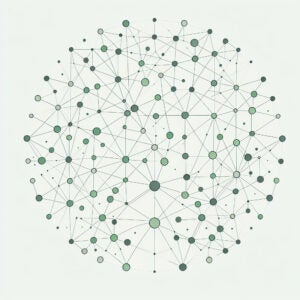 Data figured centrally in Barack Obama’s 2008 and 2012 campaign operations. Hillary Clinton is running a similar playbook.
Data figured centrally in Barack Obama’s 2008 and 2012 campaign operations. Hillary Clinton is running a similar playbook.
Mitt Romney and Ted Cruz both leaned heavily on technology-enabled voter analysis. But Donald Trump isn’t interested in the data-gathering infrastructure many see as a necessary piece of modern presidential campaigning.
“I’ve always felt it was overrated,” said Donald Trump earlier this month when the Associated Press asked about his campaign’s lack of a sophisticated data and technology operation. “Obama got the votes much more so than his data-processing machine. And I think the same is true with me.”
This position has put the class of professional Republican media consultants and data/tech operatives in a painful squeeze. It has also created a danger for down-ballot candidates who often rely on the data resources of presidential campaigns to raise money and turn out the vote.
Consultants Quake
When the Trump campaign and the Republican National Committee (RNC) began integrating strategy and operations, Trump officials said vendors who had opposed the campaign “shouldn’t be in striking distance of the RNC, any of its committees or anyone working on behalf of Donald Trump.”
Some leading Republican data and tech firms, including the Tarrance Group, Targeted Victory, Campaign Solutions and TargetPoint, are rumored to be on a blacklist. Meanwhile, newer data firm Cambridge Analytica, the vendor behind Ted Cruz’s campaign, is left with a beautiful carriage and no horse.
When the RNC dropped $150 million last week to reserve digital video inventory, (Ad Age story), the deal was worked out via nonpartisan media and marketing platforms (mostly with Google, but also via commercial video ad networks and direct buys with media properties).
The RNC is also doing its own direct deals leveraging its data with media properties and vendors, said one media buyer working with the RNC who can’t speak publicly due to a nondisclosure agreement.
Partisan agencies say a commercial marketer model is a bad fit for presidential campaigns.
“In politics, there are a lot of ins and outs of data that [nonpolitical firms] aren’t really equipped for,” Jaime Bowers, VP of digital advertising at the conservative agency National Media, said earlier this year regarding Trump’s ad firm, which had never worked on a political campaign before.
For instance, a media buyer with political roots informs its targeting with political data, like whether a person was previously an early or absentee voter, or has donated or volunteered in the past.
The expectation among Republican media operatives was that, if Trump won, his campaign would professionalize and come to resemble other recent presidential campaigns. We’re still not in the general election phase, but the transition to a data-driven operation has so far failed to materialize.
Trump and his senior officials have, if anything, been more vocally committed to their minimalist approach to tech and data. This is a problem for the GOP as a whole, since the presidential candidate is, by far, the most important source of political data for the party. (Consider the difference in phone banking, volunteers, voter registrations and donors in presidential contests compared to other elections.)
Republican targeting firms that work with the RNC and other party faithful are in overdrive to build media models around Trump voters. But the data is spotty, said sources granted anonymity to discuss internal data.
A presidential campaign typically would feed its data into the central party database (as both Hillary Clinton’s and Bernie Sanders’ campaigns have done with the Democratic data vendor, NGP VAN).
And rifts within the Republican coalition affect data networks as much as primary tallies.
The Koch brothers’ Freedom Partners, a super PAC network devoted to supporting conservative politics, will not be involved in the presidential race this year. The loss of that funding pool, as well as the data services of i360, a for-profit unit of Freedom Partners dedicated to voter analytics, is a meaningful blow to the RNC, which spent months on what was expected to be a coordinated 2016 campaign between the two organizations.
Some see the breakdown of Republican partisan data infrastructure as a net positive (or a business opportunity, at least).
“It decentralizes competition and the narrative on the Republican side,” said JC Medici, national director of politics and advocacy at Rocket Fuel. “In 2012, the Republican tech and data narrative was all consolidated. Everything you heard would come from [a firm] like a Targeted Victory. Now you’re going to see a lot more competition, which I think will be a really good thing for the party.”
“There is a good shot this will disrupt the business of the RNC-favored vendors,” said Jordan Lieberman, who leads political business for the nonpartisan data and voter targeting firm Audience Partners. “You’ll see some nonestablishment shops experience schadenfreude as establishment players learn they’ll need to actually compete for business.”













